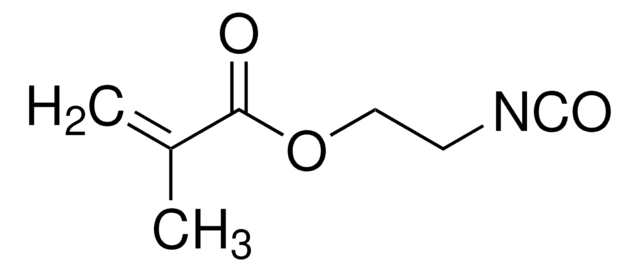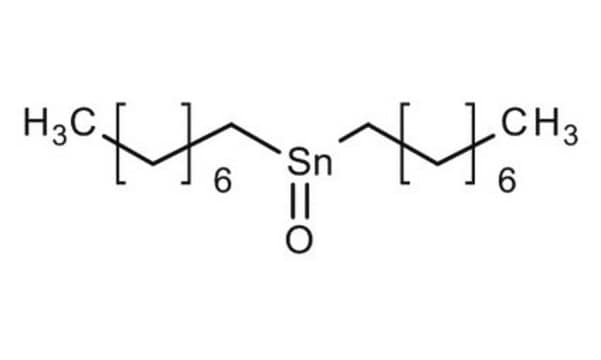About This Item
Recommended Products
vapor pressure
0.2 mmHg ( 160 °C)
Quality Level
Assay
95%
refractive index
n20/D 1.471 (lit.)
density
1.066 g/mL at 25 °C (lit.)
SMILES string
CCCCCCCCCCCC(=O)O[Sn](CCCC)(CCCC)OC(=O)CCCCCCCCCCC
InChI
1S/2C12H24O2.2C4H9.Sn/c2*1-2-3-4-5-6-7-8-9-10-11-12(13)14;2*1-3-4-2;/h2*2-11H2,1H3,(H,13,14);2*1,3-4H2,2H3;/q;;;;+2/p-2
InChI key
UKLDJPRMSDWDSL-UHFFFAOYSA-L
Looking for similar products? Visit Product Comparison Guide
General description
Application
- The synthesis of polyurethane (PU) and polyhydroxyurethane (PHU) prepolymers and lignin urethane.
- A protocol for the covalent attachment of poly(ethylene glycol) (PEG) to silicon oxide to form a hydrophilic non-fouling surface.
- Preparation of polymers by reacting hydroxyl-terminated macromonomers and aliphatic diisocyanates.
Signal Word
Danger
Hazard Statements
Precautionary Statements
Hazard Classifications
Aquatic Acute 1 - Aquatic Chronic 1 - Eye Irrit. 2 - Muta. 2 - Repr. 1B - Skin Sens. 1 - STOT RE 1 - STOT SE 1
Target Organs
thymus, thymus,Immune system
Storage Class Code
6.1C - Combustible acute toxic Cat.3 / toxic compounds or compounds which causing chronic effects
WGK
WGK 3
Flash Point(F)
372.2 - 379.4 °F - closed cup
Flash Point(C)
189 - 193 °C - closed cup
Personal Protective Equipment
Choose from one of the most recent versions:
Already Own This Product?
Find documentation for the products that you have recently purchased in the Document Library.
Customers Also Viewed
Our team of scientists has experience in all areas of research including Life Science, Material Science, Chemical Synthesis, Chromatography, Analytical and many others.
Contact Technical Service
















